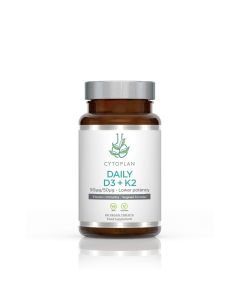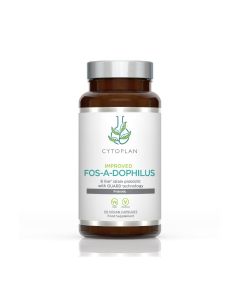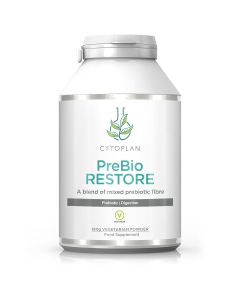How to serve a gut friendly Christmas Dinner
The holiday season is synonymous with joy, love, and, of course, delicious food! While this can often mean over-indulgence in rich foods, alcohol, gluten and sugar, which can often leave us feeling sluggish and experiencing a range of digestive symptoms – it doesn’t have to be that way! Embracing the festive spirit doesn’t mean compromising on your commitment to health and wellness, and your Christmas meal has the potential to be incredibly supportive of your gut health, as well as your overall wellbeing.
Load up your plate with the following delicious, naturally gluten-free foods and help to give your gut some TLC this Christmas…
Turkey
A Christmas staple for many, this rich source of lean protein is also loaded with nutrients such as the B vitamins, selenium and zinc. Turkey is also a rich source of the essential amino acid tryptophan. Tryptophan is a precursor to the neurotransmitter serotonin, which is often described as the “happy neurotransmitter”. A diet lacking in tryptophan has been shown to alter the balance of our gut microbiome.
Brussels Sprouts
Love them or hate them, these little balls pack a powerful nutritional punch! Rich in vitamin C and folate, as well as glucosinolate phytonutrients, which support the body’s detoxification enzymes, sprouts are a great source of fibre and can help to support regular bowel movements.
Forget soggy, boiled sprouts, you can sizzle them with pistachios and pomegranate, or even finely shred them into a festive salad – delicious!
Parsnips
This deliciously sweet root vegetable boasts an impressive nutritional profile, delivering a wide range of vitamins, minerals and active plant compounds. Parsnips are also a great source of soluble fibre, which has prebiotic properties to allow your beneficial gut bacteria to thrive.
Nut Roast – not just for those following a plant-based diet, the nut roast is a shining example of plant diversity; wholegrains, veggies, nuts and herbs all come together – a real smorgasbord for your gut bacteria.
Potatoes
While they don’t make the “5-a-day” ranks, the “humble” potato can be incredibly supportive for our gut health. They are a great source of resistant starch, which is digested by our gut microbes, creating short-chain fatty acids such as butyrate, which support the integrity of our gut lining.
Throw in a few extra potatoes for your Christmas dinner, then pop them in the fridge to use as leftovers at “twixtmas”, as cooling cooked potatoes increases their amount of resistant starch.
Spices – with aromas that can evoke our favourite festive memories, warm and comforting spices that infuse our Christmas dishes can also support our gut health. For example, ginger and cinnamon can help to support the production of digestive enzymes, while cloves and nutmeg may have antibacterial properties.
Red Wine
While drinking to excess can contribute to symptoms of poor gut health, such as heartburn, inflammation and dysbiosis, red wine has actually demonstrated benefits to microbial diversity. This may be due to the high level of polyphenols in red wine, which exhibit prebiotic properties and help to maintain gut homeostasis.
If you do find that you over-indulge this Christmas, which leaves you feeling bloated and sluggish, try to incorporate some of the following tips to support your digestive health over the whole festive season:
Hara Hachi bu
This traditional Japanese way of eating embraces the concept of eating until you are 80% full. Over-eating at Christmas can cause bloating and discomfort, so adopting this mindful eating practice, enjoying the moment and the food, can take some of the stress off your digestive system
Stay hydrated
This is especially important if you do tend to drink more alcohol than normal over the festive period, as it can be dehydrating. Getting plenty of fluid is important to maintain healthy gut motility so try to drink plenty of water or herbal teas throughout the day. Remember that fruit and vegetables are also a great source of water, as well as fibre, so add them in as often as you can.
Feed your gut
Adding probiotic-rich foods into your diet can be a great way to support the balance of your gut microbiome, which can support healthy digestion. Sauerkraut, kimchi, kefir, miso, kombucha and live, natural yoghurt are all great options, or you might like to add in a multi-strain live bacteria supplement.
Keep moving
While your normal exercise routine might take a back seat to more relaxing pursuits, it is important to keep your body moving – how about a brisk winter walk? Exercise has been shown to positively affect your gut’s microbial diversity – as well as a whole host of other health benefits!
Gluten Free Chestnut and Cranberry Stuffing Balls
Traditionally made with breadcrumbs, even the stuffing can be naturally free from gluten.
Ingredients
- 1 tbs olive oil
- 1 small onion/half a large onion, finely diced
- 200g vacuum packed cooked and peeled chestnuts
- 125g dried cranberries
- 450g butcher’s quality gluten-free pork sausages, removed from their casing
- 1 tbs minced sage leaves
- 2 tbs ground almonds
- salt & black pepper
Directions
Pre-heat the oven to 180°C.
Sauté the onions in the oil for 3-4 minutes until softened, then remove from the pan and allow to cool off a little.
Meanwhile blitz the chestnuts and apricots in a food processor for approximately 10-15 seconds to a coarse texture.
In a bowl, mix the sausage meat with the chestnuts, apricots, sautéed onions, sage, ground almonds and season well. Bring the mix together with your hands, then divide into about 16 golf-ball sized balls.
Bake on a lined baking tray for 25 minutes and enjoy alongside your Christmas meal.










